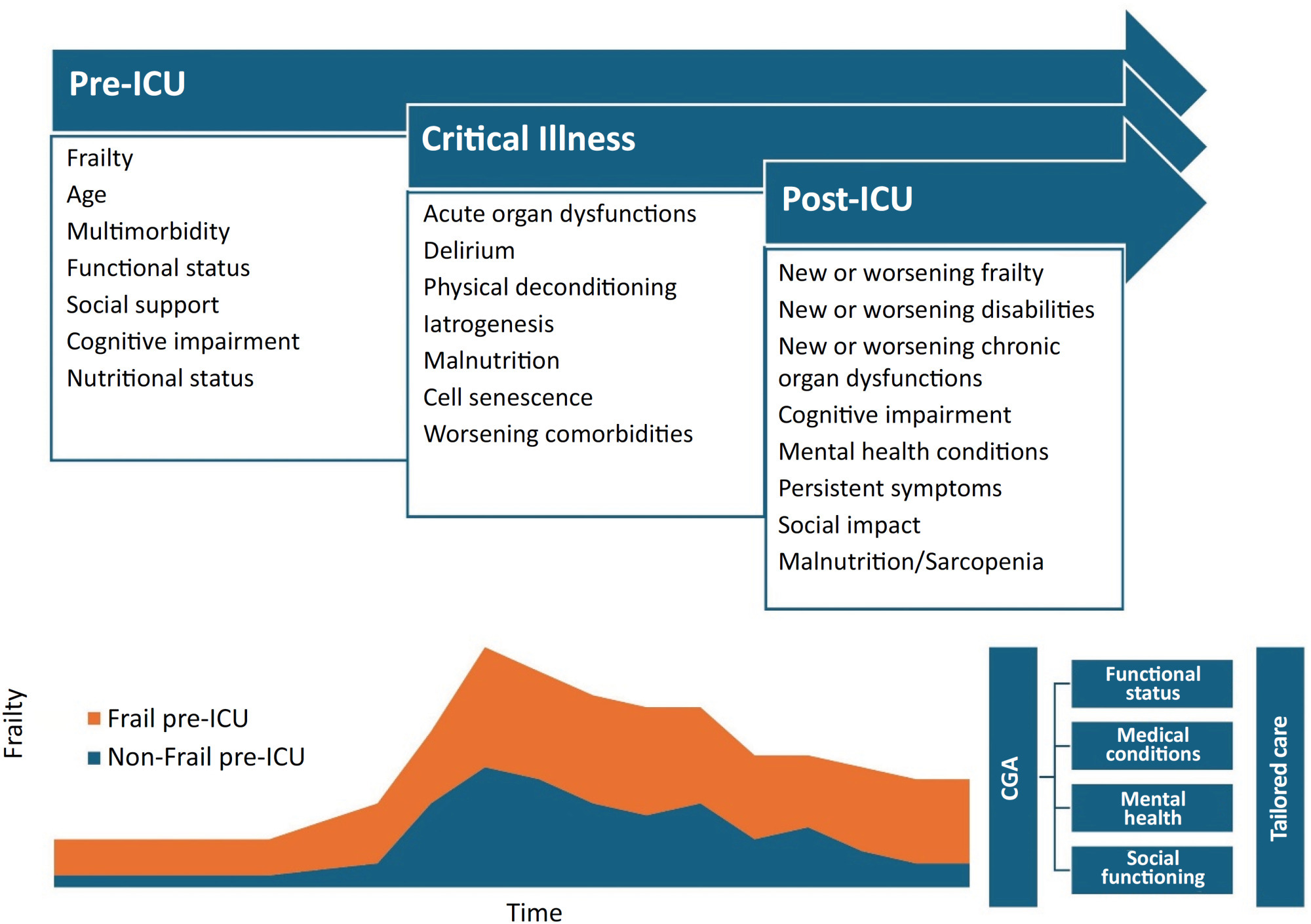
Frailty represents a condition of vulnerability leading to inadequate recovery following a stressful event, such as an acute illness or injury. This inadequate recovery results from cumulative, multisystem physiological depletion over a lifetime.() The frailty state implies that the available functional reserve is insufficient for complete recovery, often leading to a maladaptive response disproportionate to the degree of insult.() Frailty syndrome comprises five core components: vulnerability to stressors, multifactorial etiology causing multisystem dysregulation, heterogeneous presentation, clinical measurability, and association with adverse outcomes.() These components underscore frailty as a treatable clinical syndrome with a measurable biological basis.()
Importantly, frailty is separate from but related to older age, multimorbidity or disability. For example, up to 4% of adults less than 65 years of age are frail, and up to 38% are prefrail, with an increasing prevalence in multimorbid patients.() Additionally, even though disability and comorbidities overlap with frailty, 8.6% of frail patients have no disabilities or comorbidities.() Thus, while conventionally linked to older age and health issues, frailty is now recognized as a dynamic transitional state from robustness to functional decline, potentially preventable or reversible in some cases.()
[…]
Search
Search in:


Comments